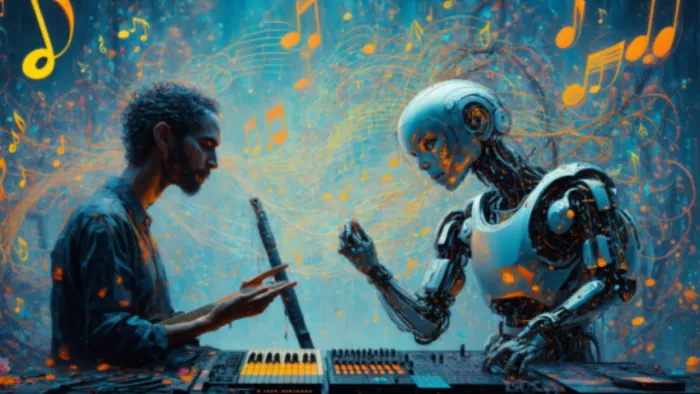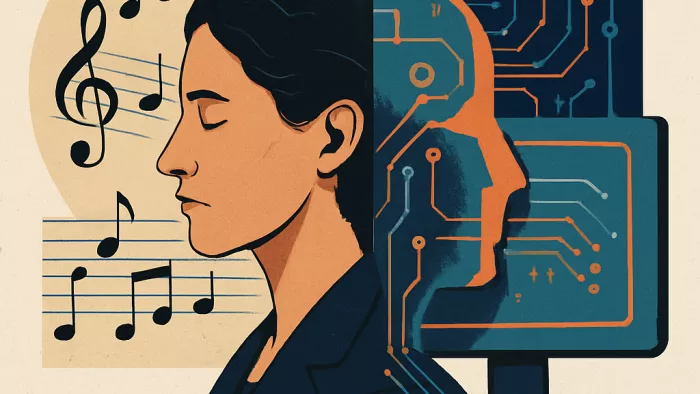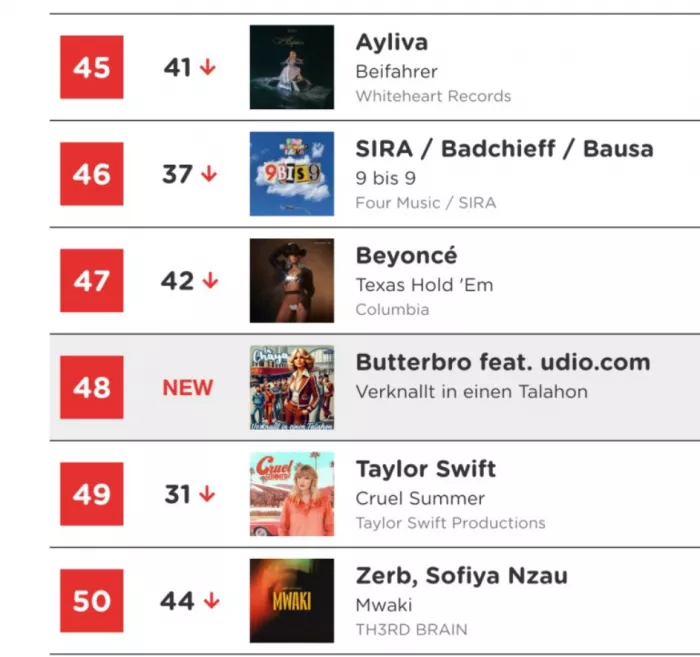
A decade ago, the idea of a machine composing music felt far-fetched. Today, AI can generate melodies, lyrics, and beats in seconds. The global AI music market was already worth nearly US$3 billion in 2024, and it’s growing fast. Clearly, this isn’t just a passing trend.

AI excels at creating melodies, rhythms, and quick drafts. It can generate dozens of song ideas in minutes, break writer’s block, and even blend genres in surprising ways. Modern models capture dynamics and phrasing, making music feel less robotic. Many producers now use AI as a collaborator rather than a replacement, letting it suggest chords, harmonies, or lyrics before adding their own touch.
But hits aren’t built on speed alone. AI struggles with longer song structures—verses, bridges, emotional buildups. Its lyrics often sound shallow, and while it mimics emotion, the lived experiences that give music authenticity remain elusive. Originality is another hurdle; too often, AI tracks feel like imitations of what’s already out there.
Surprisingly, yes. In 2024, Butterbro became the first fully AI-generated track to enter Germany’s national charts. AI-assisted projects like Magic Man have millions of streams. Even iconic voices, like Randy Travis, have been revived using AI, proving its power as an amplifier of human creativity. Still, true cultural breakthroughs from fully AI-made tracks remain rare.

Catchy hooks, emotional depth, strong production, and cultural timing usually decide whether a song sticks. AI can handle the first two fairly well, but emotional resonance and cultural context are still heavily human domains. The most successful “AI hits” so far have been human-AI hybrid machines drafting, humans shaping.
New methods are making AI music more convincing: reinforcement learning from listener feedback, multi-agent systems where separate AIs handle melody, rhythm, and structure, and models trained with emotional cues. These advances help make music feel more alive, but they still work best alongside human judgment.
With TikTok virality, playlist placements, and cross-media use in ads or games, “hits” today are more than just chart positions. AI is starting to succeed in these new arenas, though deep cultural impact is still largely human territory.
For example, in 2025, a wide range of AI music platforms available are some designed for professional producers, others for casual creators, or even complete beginners.
such as:
1. AIVA (Artificial Intelligence Virtual Artist)
One of the earliest and still widely used AI composers. Great for orchestral scores, film soundtracks, and instrumental background music.
2. Amper Music
Cloud-based tool that lets you create custom tracks in minutes by selecting mood, genre, and instruments. Popular with YouTubers and content creators.
3. Soundraw
Focuses on royalty-free music for creators. You set the length, genre, and vibe, and it generates multiple variations you can tweak.
4. Boomy
Super user-friendly. Even if you know nothing about music theory, you can generate and release full songs. Some Boomy users have actually had their tracks streamed millions of times.
5. Mubert
Specializes in AI-driven generative music streams. Used for apps, games, and live streaming platforms to provide endless background music.
6. Loudly
An AI music generator that also integrates with remixing and editing tools. Often used for social media campaigns.
Big questions remain: Who owns AI-generated songs? Is cloning an artist’s voice fair? How do we protect human musicians from being sidelined? These issues are unresolved but critical as the tech grows.
The short answer: sometimes, but rarely alone. AI can create catchy, polished tracks, but lasting hits need human authenticity, imperfections, and storytelling. The future of music is co-creation, where artists use AI not to replace themselves, but to expand what’s possible. What makes a song memorable is human authenticity, the emotions, imperfections, and stories behind it. AI can suggest ideas and speed up the creative process, but it can’t feel heartbreak, joy, or cultural shifts the way artists do. Also, there are varied views regarding this topic among people online.
That’s why the future of music isn’t AI replacing humans, but co-creation: machines providing endless drafts and inspiration, and humans shaping them into songs that truly connect.
Discussion